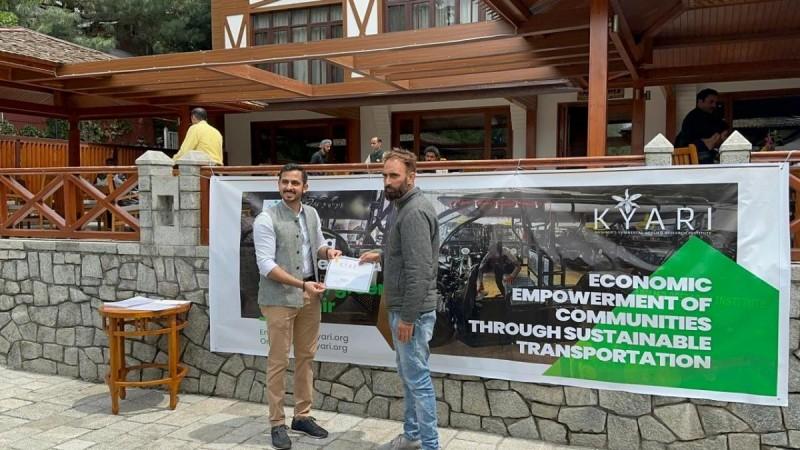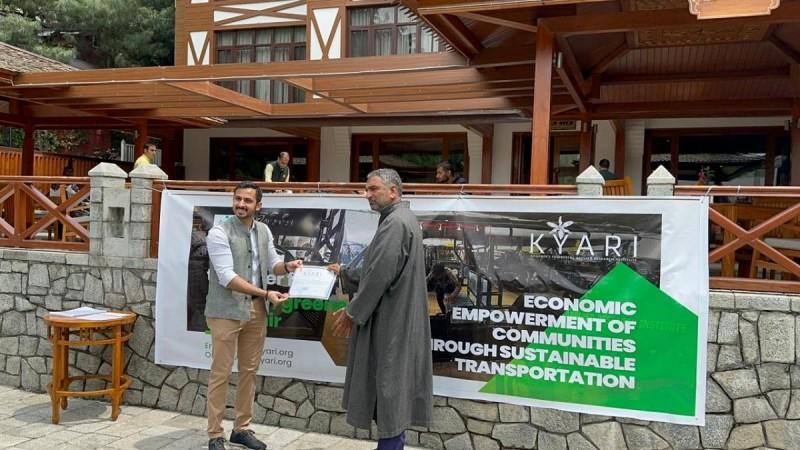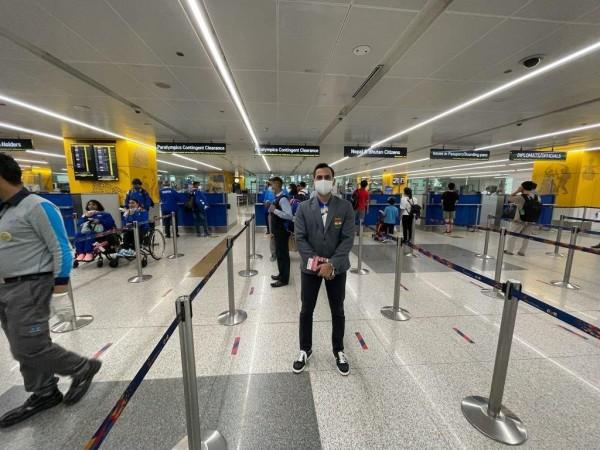Give a man a fish, you feed him for a day. Teach a man to fish, you feed him for a lifetime. An initiative befitting this popular saying by a Srinagar-based research institute is setting a prime example of dedication to social causes. KYARI, Kashmir's Yumberzal Applied Research Institute, announced on Monday its plans to transform sustainable transportation and socio-economic empowerment through employment generation in Jammu and Kashmir.
KYARI distributed 10 electric rickshaws (e-rickshaws) to unemployed and underprivileged families in the Valley on Monday as it seeks to empower individuals economically and improve their overall quality of life.

"This initiative aims to achieve multiple objectives simultaneously: employment generation, economic empowerment, showcasing the benefits of sustainable transportation, and encouraging others to take up this cause to amplify its overall effect," says Arhan Bagati, founder of KYARI, which aims at making a meaningful impact on the lives of the beneficiaries and the environment.

For this community-centric pilot project, KYARI partnered with Society for Transformation, Inclusion and Recognition through Sports (STAIRS), a not-for-profit, non-governmental organization, which aims to empower the underprivileged youth and children of India. KYARI and STAIRS will work together towards the empowerment of underprivileged communities in J&K and a brighter future for the youth of the region.

"We are excited to distribute the E-Rickshaws today under our 'Play to Earn' model which looks at creating employment and self-development opportunities for the youth. We are confident that this small step will touch the lives of many others as the beneficiary families will in turn be able to support many others," Siddhartha Upadhyay, founder of STAIRS, said in a statement.
A noble initiative with sustainability effect
KYARI's initiative also aligns with India's mission to achieve a zero-carbon footprint by 2070 and supports the rapid adoption of electric vehicles (EVs). Electric rickshaws bring a much-needed revolution to public transportation. They have numerous benefits over conventional auto rickshaws. Not only do electric vehicles contribute to zero air and noise pollution, but e-rickshaws are also cost-effective, which cut prices by nearly half.

Seeing beyond affordability, e-rickshaws are practical on the ground, too. They offer a smooth ride, particularly helpful for urban roads and rural terrains, and have a higher capacity of carrying up to 6 people per trip. The low operational costs of e-rickshaws and the convenience of charging them at home or charging stations puts less burden on drivers.
What is KYARi?
KYARI's mission is to conduct applied research on a wide range of topics affecting civic and social issues in Jammu and Kashmir. It aims to identify developmental challenges in the region and provide effective, efficient, and economical solutions.
KYARI recently organized the Kumaon Literature Festival, which was inaugurated by J&K LG Manoj Sinha and also brought and assisted one of India's leading film production houses to execute the shooting of a film, both in Kashmir.

KYARI is currently working on multiple research papers on various topics, including horticulture & climate change, rural tourism & waste management, and the adversities faced by the nomadic tribal communities. Through its research and actionable insights, KYARI aims to bring about tangible change.
KYARI's founder Arhan Bagati is determined to help unlock the full potential of J&K and its people, and also generate jobs and opportunities for sustainable development. Bagati, who is just 22 years old, is India's first and the world's youngest Deputy Chef de Mission of the Indian Paralympic Contingent for the Tokyo 2020 Paralympic Games. He also serves as the Awareness and Impact Ambassador of the Paralympic Committee of India (PCI). His background and contribution to social causes make him ideal to lead charge for KYARI.

















